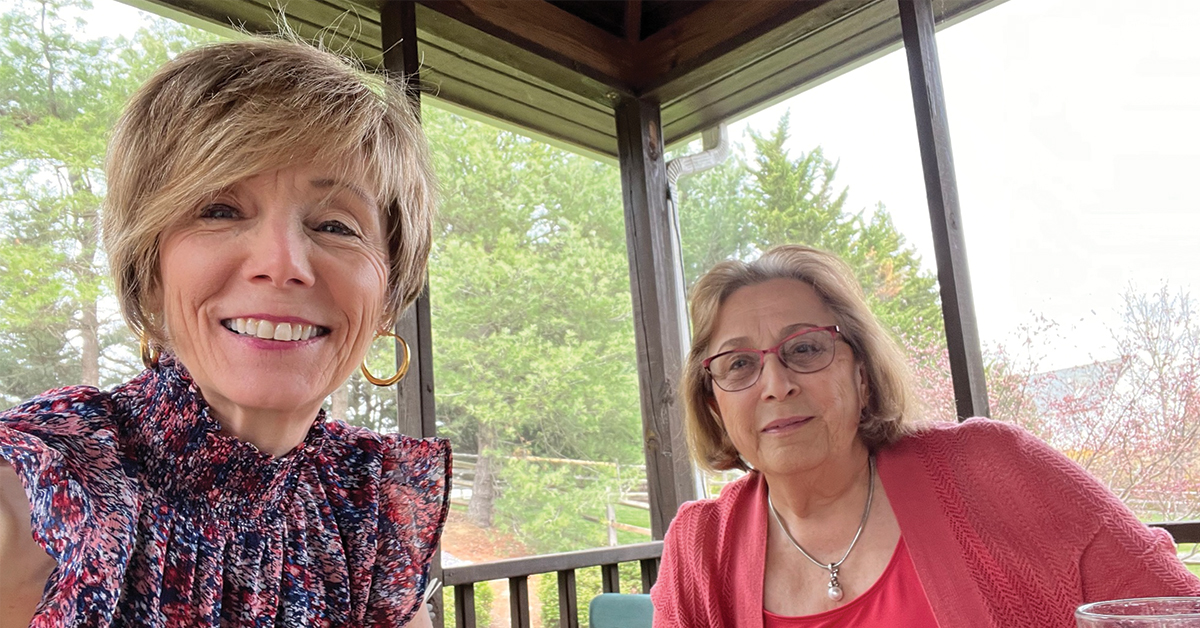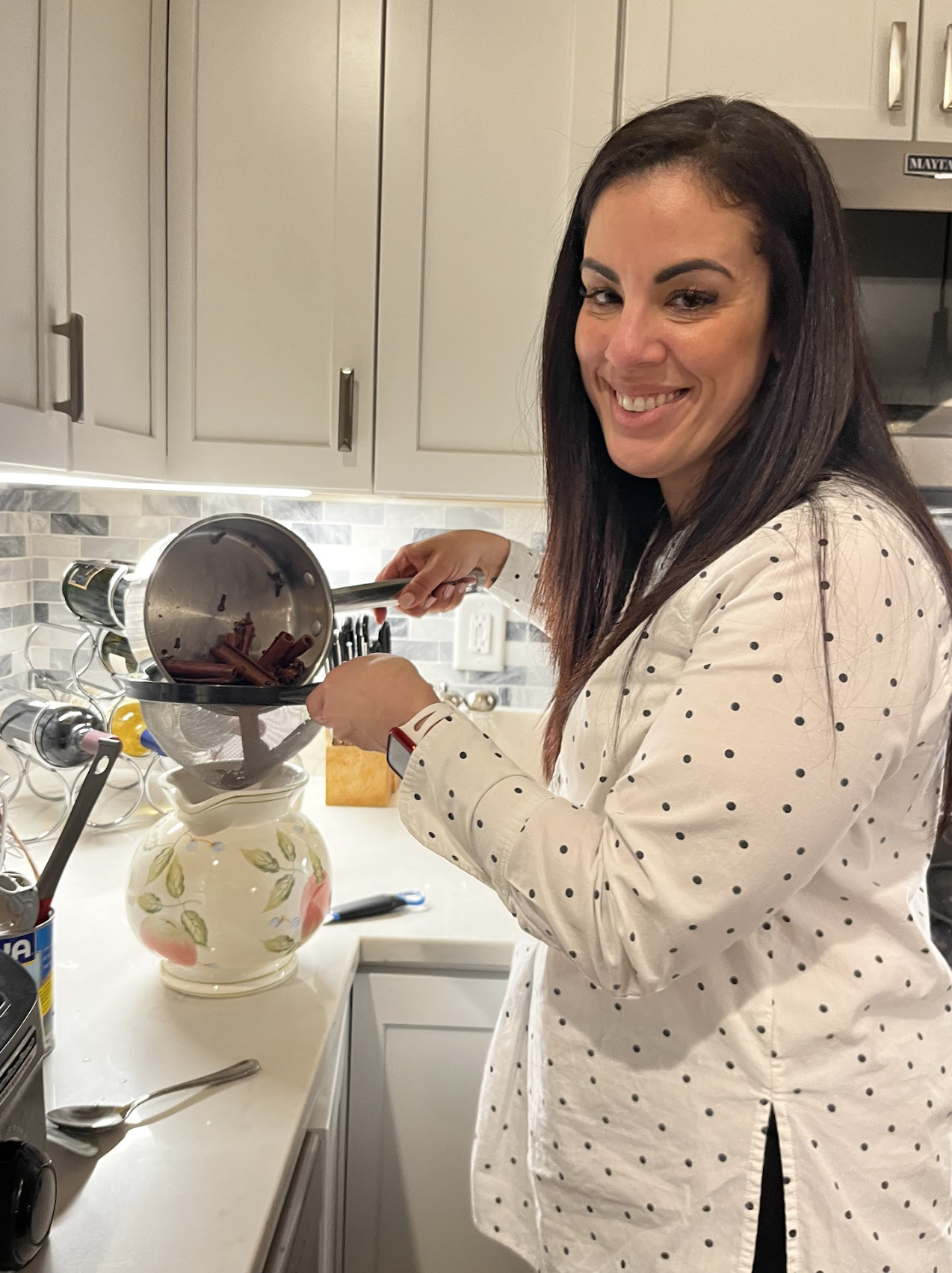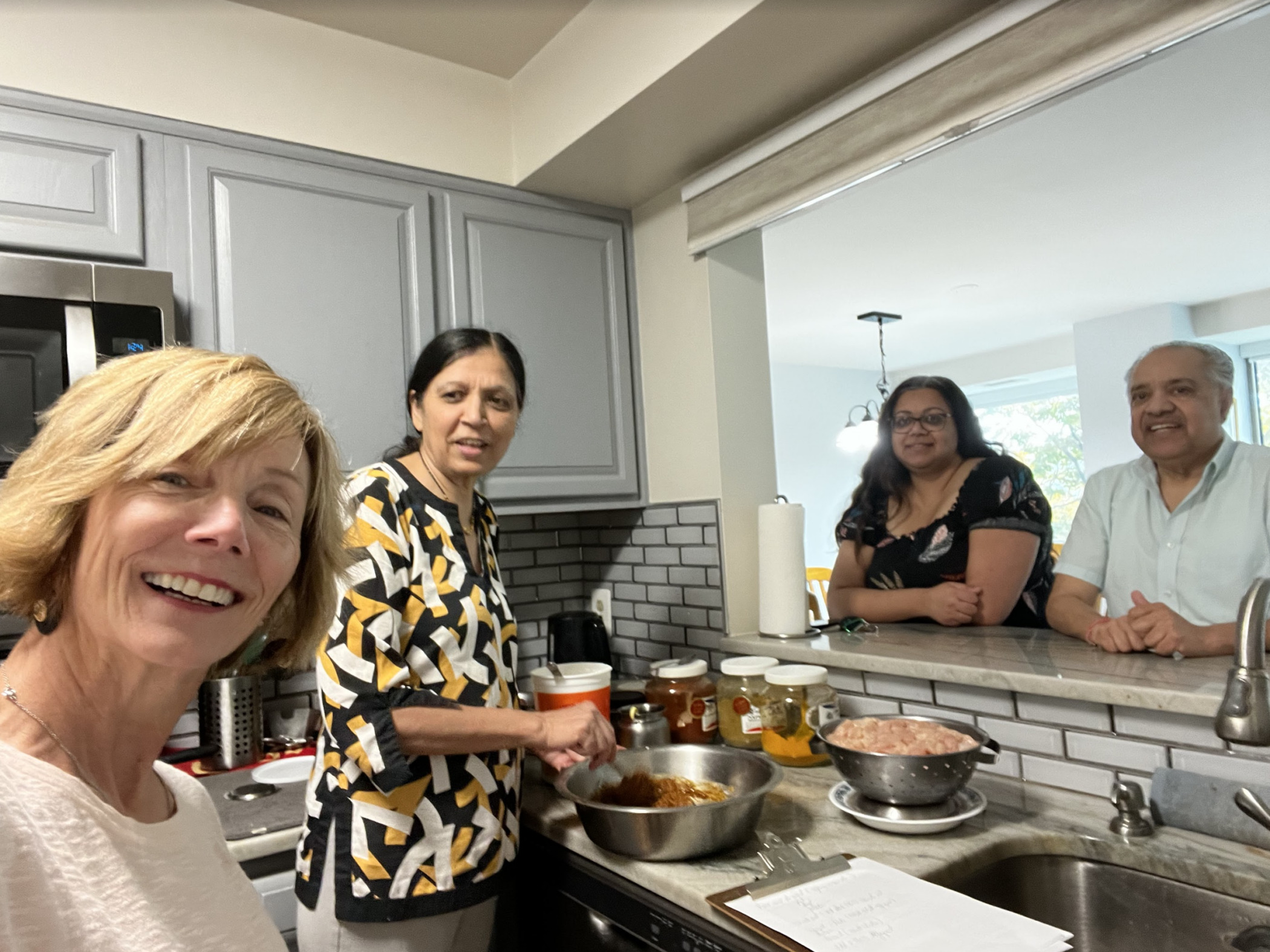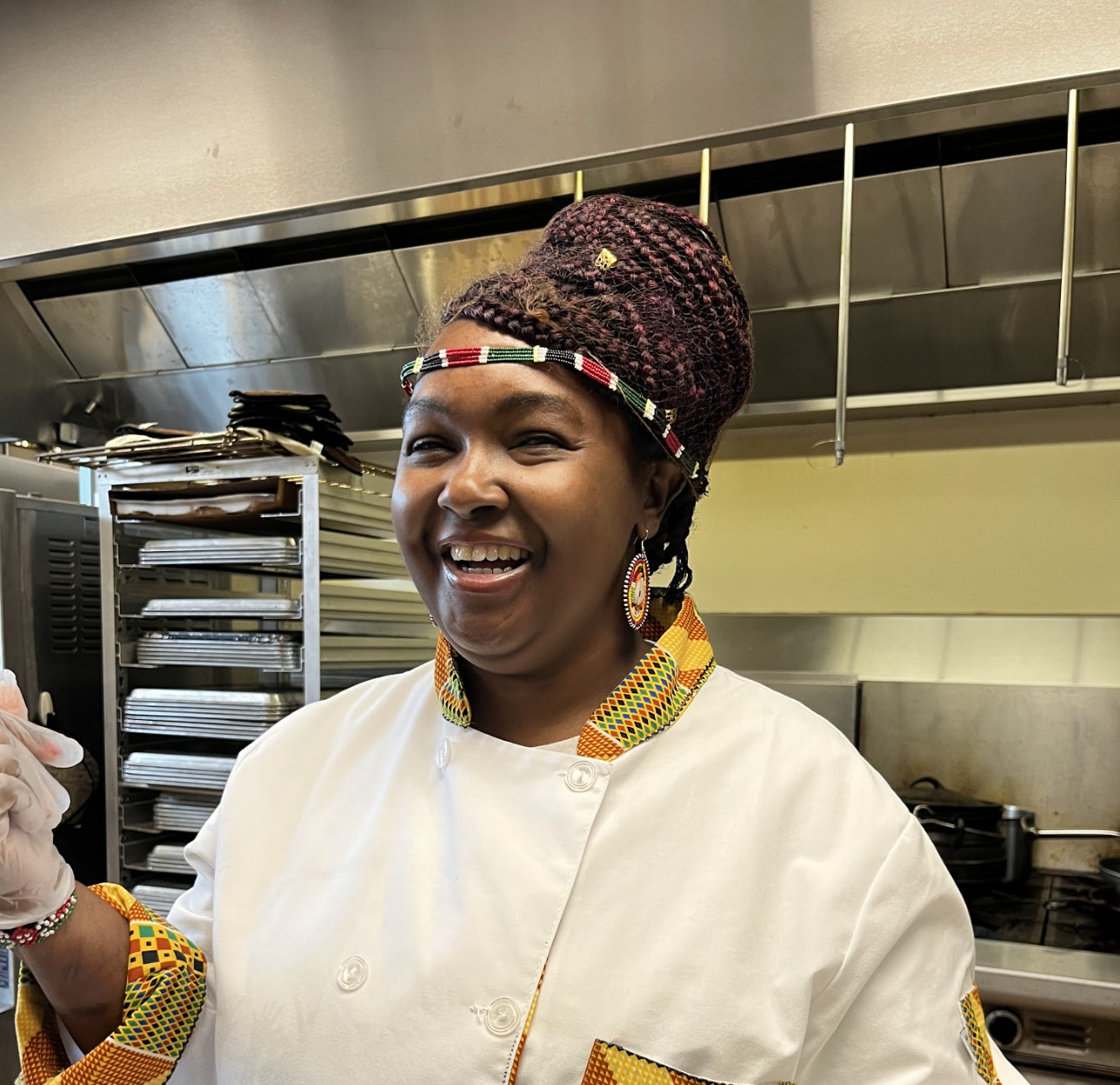Short and sweet…that’s the best way to describe the last edition of “A Yummy Year:…

April – Sila Alegret-Bartel
Life can be so surprising! We never know when an unexpected tragedy will rock our world or who will provide comfort and support in our time of need. On Wednesday, April 13, Sila Alegret-Bartel, Prime Time for Women’s “cultural chef” for April arrived at my door. She was carrying two huge bags that contained all the necessary ingredients to make Cuban Sandwiches, one of her favorite dishes from her homeland, and the world’s heaviest grill.
I welcomed Sila with a smile I really didn’t feel and said, “Good morning! Thanks for coming. How are you?“ Instead of replying she said, “How are you?” The truth was I was feeling worried and sad. I had just learned that a close relative had been admitted to Johns Hopkins Cancer Center with Acute Myeloid Leukemia. I found myself sharing my concerns with Sila, who unexpectedly comforted me in a way that demonstrated great understanding and incredible compassion. Sila shared that her husband, years ago, had been admitted to Johns Hopkins Cancer Center after undergoing treatment and two unsuccessful surgeries at another hospital. She expressed her sympathy and then said, “Your relative is in the very best cancer center in the very best hospital in the world. He’s going to be okay.” Her optimism and conviction filled me with hope. And then I smiled a smile that I truly felt.
As we unpacked her bags, Sila told me about her life in Cuba as a young girl. She had a typical childhood. Sila lived with her parents, two sisters and a younger brother, attended school, read books and played outside. Sila described the Island as equal parts beautiful beyond belief and overwhelming poverty. She said, “Visitors to Cuba see the beautiful beaches, turquoise waters, lush valleys and majestic mountains but miss the deprivation that is all too familiar to many Cubans.”
Curious, I asked, “When did you immigrate to the United States?” That led to a mini history lesson, which was fascinating and made me wish I had talked less and paid more attention during high school history class. The short version, according to Sila, is that things weren’t great when Castro led a revolution to overthrow Fulgencio Batista, a dictator, but got much worse under Castro. She asked, “Do you know about the ‘Peter Pan children?'” I didn’t, so she kindly explained. Here’s what I learned. Because Castro required all boys to join the military at 15, there was a clandestine mass exodus of over 14,000 unaccompanied Cuban minors ages 6-18 to the United States from 1960-1962. During this time, Sila’s parents sent her brother, who was 13 years of age, to live with relatives in the United States. Shortly after that Sila went to Spain to visit relatives and then immigrated to the U.S. in 1966. Her parents and sisters eventually came to the U.S. and settled in Florida, where her sisters still live. Her brother, the first family member to immigrate to the U.S. now lives in New Jersey, where he is a pastor.
As Sila laid out the ingredients for the Cuban Sandwiches: pork marinated in mojo sauce, mild ham, Swiss cheese, thinly sliced dill pickles, mustard, mayonnaise, and Italian bread (because she couldn’t find Cuban Bread), I asked about other traditional foods her family ate during holidays. Sila described a delicious black bean dish cooked with garlic, bay leaf, onion, red and green bell peppers, and a tablespoon each of sugar and vinegar that relatives enjoyed at family gatherings. On Christmas Eve, or Noche Buena, her family feasted on pork, turkey, ham, rice and yuca or cassava, a tuber similar in size and shape to a sweet potato that has a slightly sweet and nutty taste. As she described the yuca, I thought, “Yay, I’ve learned something new, and I can’t wait to try it!”
Sila began preparing the sandwiches by slicing the bread lengthwise and then layering first the mayonnaise, followed by the ham, marinated pork, and sliced pickles. She then gently snuggled the cheese in behind the ham, as if tucking a blanket around a sleeping child. She topped it all off with a generous squirt of mustard before closing the sandwiches and liberally spreading butter on both sides.
Sila asked me to preheat the grill she brought, which she has been using to make Cuban Sandwiches since the 1970’s. Wow, that grill has seen some action! If something works, don’t mess with success! And boy, did it work! The weight of the grill compressed the bread just the right amount and the hot cast iron surface seared the buttered bread, delivering a crust that was perfectly crisp! I’m at a loss for words to describe the inside of the sandwich, which believe me, doesn’t happen often. Some experiences, either too wonderful or horrible, defy words. Let me just say it tasted like “a little bit of heaven right here on Earth”, which is also a fitting way to describe the beautiful unspoiled beaches in Cuba!
Over lunch I asked Sila about her past and current work. When she came to the U.S. Sila worked in Washington, D.C. as an account manager first for Kiplinger Marketing Services and later for The Paralyzed Veterans of America. At 58 she had enough of commuting to D.C. from Frederick, Maryland and decided to pursue an entirely new career. With her incredible energy and creative entrepreneurial spirit, she founded the International Corporate Training & Marketing, LLC, which provides translation and interpretation services in 16 different languages and conducts corporate bilingual training sessions. She is passionate about her work and loves helping people who feel invisible, because they don’t speak English, be seen and heard. She currently employs 26 interpreters who mostly provide services in school and medical settings,
As Sila spoke she emphasized the difference between bilingual speakers and interpreters. She explained that interpreters must have excellent people skills, know how to write as well as speak the language, understand the culture and be adept at reading body language. Interpreters have a huge responsibility; they have the ability to open the doors of understanding that lead to more connections and a better life for immigrants.
Talking with Sila about her work was fascinating but at one point I just had to interrupt her. “OMG,” I cried! “This plantain crisp may be the tastiest chip ever!” My advice to you is, if you’ve never eaten plantain chips before, especially Trader Joe’s Plantain Crisps, don’t start! You may never STOP! After talking a little more about the cuisines from different South American countries, Sila said, “Each country’s cuisine is unique and special. Likewise, though most South American countries speak Spanish, there are dialectal variations specific to different locals. Ever the professional, Sila returned to her love of language and her passion for helping others understand.
At 78, despite what her sisters advise, Sila has no interest whatsoever in retiring. “Why retire? To do what? I enjoy what I do!” she said. Then Sila laughed and said, “After all, 70 is the new 40!” Honestly, when I look at Sila’s energy, her passion for life and her feistiness, I think 70 might be the new 30. Our conversation went full circle and as I walked Sila to her car she spoke of her love for her adopted country. “Because of what I went through in Cuba, I fiercely value American Democracy and want to protect it!” It’s a beautiful thing to meet someone who grew up in another country, a generation apart, and realize just how much you have in common. Here’s to the power of food and stories to connect us all!



